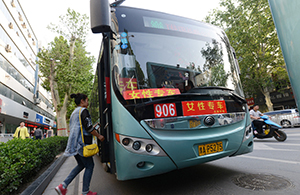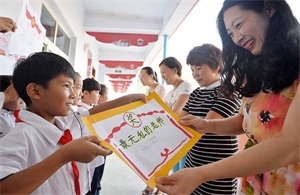长三角城市群规划(chángsānjiăo chéngshìqún guīhuà):City Cluster Plan for Yangtze River Delta
(China Daily) Updated: 2016-05-13 07:31At an executive meeting of the State Council, China's Cabinet, on Wednesday, which was presided over by Premier Li Keqiang, approval was given to a city cluster development plan for the Yangtze River Delta.
The plan aims to cultivate higher level economic growth in the Yangtze River Delta, the region with comparatively advanced economy and high level of urbanization in the Chinese mainland. The region only accounts for 2.1 percent of China's national territorial area, but generates 20 percent of China's GDP. It is regarded as the most important engine for China's economic growth.
The plan promotes the development of a Yangtze River Delta city cluster through reform and innovation to upgrade industry, accelerate people-oriented new urbanization and agricultural modernization, and supporting the development of neighboring regions.
It requires the Yangtze River Delta city cluster to learn from the reform experience of the country's pilot free trade zones and independent innovation demonstration zone and launch programs to transform government functions and promote institutional innovation.
The goal of the plan is to make Yangtze River Delta cities a world-class city cluster with global influence by 2030.

I’ve lived in China for quite a considerable time including my graduate school years, travelled and worked in a few cities and still choose my destination taking into consideration the density of smog or PM2.5 particulate matter in the region.











